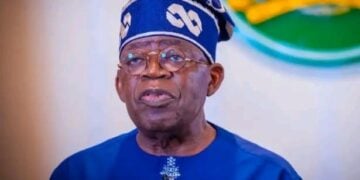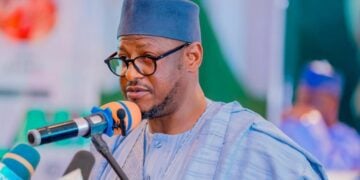Blockchain technology has the potential to address many of the human factor issues that can arise in elections by providing transparency, security, and trust in the electoral process, and here’s how it does it.
Blockchain records transactions in an immutable and tamper-resistant manner. When applied to elections, each vote can be securely recorded as a transaction on the blockchain. This ensures that once a vote is cast, it cannot be altered or deleted, eliminating concerns about fraudulent changes to the results by election officials.
Blockchain is a decentralized ledger/database accessible to all participants in the network. This transparency allows anyone to audit the election process in real-time. Voters can verify that their votes were counted, and election observers can independently validate the results, reducing opportunities for human manipulation.
Blockchain employs strong cryptographic techniques to secure data. This makes it highly resistant to hacking and fraud. Attempts to tamper with the election data stored on the blockchain would require an immense amount of computational power and would be easily detectable.
Blockchain can be used for secure identity verification, ensuring that only eligible voters participate in the election. This reduces the risk of impersonation and multiple voting, which are common human factor issues.
Smart contracts are self-executing contracts with the terms of the agreement directly written into code. In elections, smart contracts can automate various processes, such as vote counting, result tabulation, etc., eradicating the need for election officials to handle these processes and minimizing opportunities for manipulation. Due to the fact that these smart contracts are usually open-sourced, their codes can be scrutinized by experts all over the world to ensure that no code in the smart contract is intended to give an advantage to one candidate over the others.
By distributing election data across a network of nodes, blockchain reduces the risk of centralized control and manipulation by a single authority or individual. There’s no elevated privilege for any node on the network, be it that of the electoral commission. Every node is equal on the blockchain. This decentralization enhances the integrity of the election process.
Blockchain’s audit trail allows for easy tracing of every vote and change in the system. This makes it possible to investigate any discrepancies or anomalies, providing a robust mechanism for holding individuals accountable for any fraudulent actions, a feature that is much needed but unavailable in the traditional election system.
Blockchain can also enable secure remote voting, allowing citizens to vote from the comfort of their homes. This can increase voter participation and reduce the risk of intimidation or coercion at physical polling units. With this system put in place, location or fear of insecurity would no longer be a valid excuse for registered voters to shy away from carrying out their obligations as patriotic citizens of Nigeria to vote during elections.
Blockchain-based voting systems can be designed to be user-friendly, making it easier for all citizens, including those with disabilities, to participate in the electoral process.
The blockchain network to be used is Ethereum because it’s the only public blockchain currently that allows the development and deployment of apps popularly known as Decentralized Apps (DApps) on it through smart contracts.
Traditionally, when citizens want to register as voters, they must visit an INEC registration center, probably wait under the sun for a lengthy number of hours before registering due to the population of people present for the same purpose.
With this platform up and running, citizens that want to register as voters need not step out of their houses as the registration process can be done from the comfort of their homes. Bio-data such as National Identification Number (NIN), full names, mobile number, email, date of birth, gender, State of origin, and Local government of Origin will be collected.
The DApp will allow registrants to take and upload a passport photograph of themselves. For thumbprinting, an API such as WebAuthn API will be integrated into the DApp to allow thumbprinting through mobile devices for registrants.
When registrants select their state and local government of origin, two more fields will appear auto-filled. One field will contain the senatorial district, and the other will contain the federal constituency the registrant is under by origin.
Once registrants are sure of the information, they will submit the form. Once the form is submitted, making use of NIMC (National Identity Management Commission) Verification Service, bio-data such as NIN, date of birth, state of origin, local government of origin, and biometrics such as the thumbprint images and passport photo will be verified with their counterparts in the NIMC database.
If the verification is successful, a One-Time Password (OTPs) will be sent to the mobile number and another to the email specified by users for verification purposes. Once users submit both OTPs, completing this verification step, a key-generating algorithm, specifically the Elliptic Curve Cryptography (ECC), will be used to generate pairs of public and private keys for all users.
The public keys will be used to generate Ethereum addresses for each user that can only be used for transactions on the DApp.
The private keys, which will be stored by the DApp, will be hashed to produce Voter Identification Numbers (VINs) for the registered voters and will be used to log in to the DApp during the election day. An electronic copy of the voter’s card and the newly assigned VIN will be sent through email and SMS, respectively, to all users that successfully registered.
Using the SHA-256 hashing algorithm, the data provided by the user, the key pair of the user, the user’s VIN, and the generated Ethereum address will be hashed, and the hash value stored on the blockchain.
– Morphy, a computer science student, writes from University of Nigeria Nsukka (UNN)
“Some are born great, some achieve greatness and some have greatness thrust upon them” -William Shakespeare
For those who have been close to, or interacted closely with the Yobe state Governor, Hon. Mai Mala Buni CON, it is very convincing to assume that the famous 17th century English playwright, William Shakespeare, had Buni in mind while writing the play “Twelfth Night”.
Buni, adequately fits into Shakespeare’s description of the above quotation. He had since early age, worked hard for greatness through enormous humility, large-hearted generosity, goodwill, and accommodation. At a later age, he had greatness thrust upon him to occupy various public offices including that of a state Governor and National Chairman of Nigeria’s ruling party.
Since when he was beckoned to serve over 30 years ago, Governor Buni had remained in the corridors of power with solid results, to the glory of humanity. Buni has always been sought after to serve in public offices, without him soliciting for such offices. True to the maxim, ‘the gold fish has no hiding place’.
At the youthful age of 20, he was elected into Gujba Local Government Council to represent Buni Gari ward, and to the surprise and bewilderment of his folks and foes alike, he became the most powerful council leader (Speaker) among the local government councils in the Old Borno state (comprising present day Borno and Yobe states).
Born on 19th, November 1967 in the historic town of Buni-Gari to a merchant father, Mai Mala Buni started memorization of the Holy Quran under his parents before moving to other teachers and clerics as it was the tradition and culture of the people of the old Kanem-Bornu empire. He was later enrolled into Buni-Gari Primary School, then moved to Government Secondary School Goniri. He is a graduate of International Relations.
His emergence at the national scene started when he was elected the first substantive National Secretary of Nigeria’s first-ever merger political party, the All Progressives Congress (APC). He was, prior to that, and at various times, the state chairman of AC, ACN and APC. The success of APC defeating the then-ruling Peoples Democratic Party (PDP) and its sitting President, brought Governor Buni’s political sagacity and sophistication to bare and was unanimously returned for a second term of office as the National Secretary of the ruling party.
Buni, described as ‘Peace Ambassador’ is gifted with a rare character of tolerance, accommodation and uncommon humility. His faith and skill in dialogue, negotiation, and peaceful resolution of disputes and disagreements are down to earth and second to none. His character attracted him to both the old and new-bred politicians far and near from across the country and suddenly, Buni became a political colossus whose name traversed the length and breadth of Nigeria’s political space.
Today, Governor Buni is a personification and symbolizes the dictum, ‘’Politics Without Bitterness’’ as preached by his elder kinsman, the late Alh. Waziri Ibrahim, former Presidential Candidate of the defunct Great Nigeria Peoples Party (GNPP) in 1979. Buni earned himself a nickname and is popularly referred to as “Limamin Sulhu” which literally means the Apostle of Reconciliation.
The signs of his political greatness started in earnest when as a Local Government Council leader, he earned the unwavering loyalty of eight councillors from the defunct National Republic Convention (NRC), leaving the council chairman with just three councillors from the Social Democratic Party (SDP). This made him the most powerful leader (Speaker) in the state and performed creditably well to the admiration of all. That first outing, became the springboard that propelled him to the future leadership assignments that brought out the very best in him.
It was therefore not surprising when shortly after assuming office for his second term as National Secretary of the All Progressives Congress, the good people of Yobe state, sought for his return to the State to run for the office of the governor of the state.
The election of Buni as Yobe state Governor was unprecedented and convincing beyond an iota of doubt. It recorded a landslide victory. His success at the polls registered another history as the only governorship election that was never challenged in any court of law by other governorship candidates or the opposition political parties. It was generally accepted because, a man of the people was elected as Governor of Yobe State.
And few months into office of the Executive Governor, the National Executive Committee of the party, unanimously nominated Buni to Chair the Caretaker and Extraordinary Convention Planning Committee to salvage the party from the jaws of an imminent collapse.
Governor Buni combined the task of governance and party administration with diligence, outlining his priorities as a Governor and setting his target goals as a political party administrator to reposition the ailing APC. He worked round the clock at both the state level and the party headquarters, and thus, translating into record-breaking achievements at both levels. For the party, its once precarious destiny got reshaped while Yobe state recorded infrastructural revolution.
At the home front, Governor Buni declared a state of emergency on education and listed among other goals, to establish one functional Primary Healthcare Center in each of the 178 political wards across the state, Agriculture, youth and women empowerment, roads, water supply and other infrastructural development, on the priority list of his administration.
Health
To the glory of God, 138 out of the proposed 178 Primary Healthcare Centers have been completed, furnished, equipped and put to use. Six Primary Health centers are now upgraded to General Hospitals while Four General Hospitals were also upgraded to Specialists Hospitals.
The State Teaching Hospital was upgraded to be in tune with changing times, making the Teaching Hospital one of the best in the country! boasting of adequate manpower and state-of-the-art machines.
The aspiration of Yobe state government under the Governor Mai Mala Buni administration to curb the unacceptable rate of maternal, newborn and under-5 child mortality in the state; is graduating from a dream to solid reality, with the completion of the construction of the Maternity, Paediatrics and Newborn Complex, at the Yobe State University Teaching Hospital, Damaturu.
Building Nigeria’s largest Maternal and Child Healthcare Complex
The Buni administration has constructed Nigeria’s largest maternal and child care complex. The structure has been completed and is now being equipped for inauguration by President Muhammadu Buhari. The structure is made up of seven blocks of one storey complex with patient-friendly spaces in accordance with the global best practice in modern maternal, Newborn and Paediatric health care as obtained in advanced countries. The architectural masterpiece would satisfactorily take care of expectant/nursing mothers, their newborn babies as well as children in general.
The Obstetrics and Gynaecology wing of the Complex has 64 Open cubicles, five Call duty rooms, five satellite pharmacies, one side Laboratory and four Nurses’ stations.
The Special Baby Care Unit (SCBU) has three adjoining generously spacious and nicely done wards that is 28 baby cots wards for newborn babies suspected of sepsis, 10 newborn cots wards for out-born babies, and 10 newborn baby cots wards for In-born babies, four Nurses’ stations, 10-bedspace room/unit for their nursing mother. In addition, there is a 10-bed space room for nursing mothers to breastfeed their newborn babies, five Doctor’s rest/Call duty rooms, five nurses’ rest/change rooms, five offices for the unit Matron in charge, four additional offices for health information management/documentation, seminar room, a library and with Kitchen and stores.
The Labour ward and obstetrics theatre units; have provision for four operation suites (including attached sterilization and scrubbing area, six recovery rooms, additional offices for anesthetics perioperative nurses, other theatre support staff, males and females change rooms, common room for staff on duty, seminar and computer rooms.
The Paediatric medical ward has 40 cubicles, four call rooms, four side labs and a satellite Pharmacy.
Similarly, the Emergency Paediatrics Unit has 32 bed space cubicles (including a resuscitation cubicle), 2 doctor’s call duty room, a side laboratory, nurses’ station, change room, satellite pharmacy and eight staff offices.
Apart from the gigantic MNCH Complex the Yobe State Government under the able and dynamic leadership of Hon Mai Mala Buni CON has constructed a modern 150-bed capacity isolation center with a state-of-the-art Public Health Laboratory at the Yobe State University Teaching Hospital Damaturu.
In line with Governor Buni’s policy of providing standard and functional health facilities at all levels, state-of-the-art equipment are being installed at the center to provide all the necessary healthcare services to mother and child, to effectively curb the menace of maternal and child mortality in the state.
Meanwhile, a 32 apartment block of officers quarters has been constructed at State Teaching Hospital to build upon the already existing housemanship programme at the Yobe State Specialist Hospital Damaturu.
There is no doubt that this ambitious project which is about to be commissioned will be the largest Maternal, Newborn and Child Healthcare Complex in Nigeria.
Yobe state today provides World class medical treatment and is fast becoming a Medical tourism center, attracting patients from far and near to access efficient and affordable medical services.
Alh. Adamu Hashimu, a retired Permanent Secretary in the Bauchi state civil service, whose ailing son was referred to Egypt for surgery attested to what Yobe state symbolizes medically. A medical Doctor neighbour of his had suggested they go to Yobe State Teaching Hospital as an alternative with very less financial implication against an overseas treatment. He opted for the Yobe Teaching Hospital and the son had the first successful surgery at less than N40,000 and the second surgery successfully, with about the same financial cost. He expressed delight with a famous remark that “l had never expected these services are obtainable here in Yobe state, Governor Mai Mala Buni, has done exceptionally well to bring affordable and efficient healthcare services to his people. In Yobe state under the Buni administration, democracy is truly and evidently working. I passionately appeal to other state governors to emulate the Buni example. On behalf of my humble self and family, l sincerely congratulate and express our profound gratitude to the governor, government and people of Yobe state.”
It is a record breaking programme that Yobe state government under the Buni administration, is the first state in the Northeast sub-region to introduce the Healthcare Contributory scheme known as the Yobe State Contributory Health Management Agency (YOCHMA) and Yobe Drugs Management Agency (YODMA) to ensure adequate funding and availability of drugs for patients under the expanded free drugs programme of the state government covering pregnant women, children, victims of road accidents, the weak and aged, and other vulnerable persons. presently, there are over 400,000 beneficiaries enjoying the scheme. Yobe is the only state in the North with the highest employer-subsidy of the programme. The programme has been expanded to cover the weak, vulnerable, and indigent families.
The State Government under Governor Buni also introduced emergency ambulance services on highways and other strategic locations to provide emergency services to domestic and road accident victims before reaching the nearest health facilities.
To boost the morale of medical personnel in the health institutions, over 30 medical doctors, 2,000 graduates of the state-owned College of Nursing and Midwifery, and 50 graduates of the School of Health Technology were employed by the Buni administration. Similarly, Hospitals and Doctors quarters were given a face-lift to provide a conducive working environment in the health facilities.
The Buni administration is engaged in a holistic approach to healthcare delivery including prompt payment of counterpart funding that is paying off by making healthcare accessible and affordable to the people at their doorsteps. Little wonder Yobe state has become a medical tourist center to patients from the neighbouring states and indeed, beyond.
Yobe state’s participation in national healthcare activities is exemplary, this explains the outstanding performance of the state in the National immunization exercises leading to receipt of the award of the best performing state.
Education
The Buni administration rehabilitated existing schools and established six modern and seven Mega schools to decongest schools, procured books and laboratory equipment worth billions of Naira, employed more teachers, trained and re-trained more teachers to enhance manpower to improve quality of education in the state. Government is sponsoring over 220 students to India, and many others in various institutions across the globe studying specialised courses.
Airport
The Buni regime has completed the state-owned international Cargo airport which it inherited at skeletal stage. It is now ready for commissioning. It also initiated and constructed four modern markets to create conducive environment for trade and commerce for economic development, resuscitated three dormant industries, provided women and youth empowerment initiatives for self-employment, constructed 2,300 housing units the largest housing intervention since the creation of the state.
Roads and Electrification
Numerous township and inter- town roads have been constructed to facilitate movement of goods and services. Government has also provided 133 communities with electricity supply to make life better for the benefitting communities. Today, there has been an increase in self-employment and economic empowerment in the benefitting communities.
Agriculture
The Yobe state government under the able leadership of Governor Buni is transforming agriculture from subsistence farming to commercial based agriculture through provision of inputs and implements.
It is indeed gratifying that the Buni administration is rated by independent Budget monitors as one the best in Nigeria in Capital Budget Expenditure, and prompt in payment of workers’ salaries and the best performing state in due process, transparency and accountability in the conduct of government business.
Party Administration
As the Chairman Caretaker Committee, Buni operated an open door policy to give all stakeholders a sense of belonging and ownership of the party and soon, aggrieved parties who left the party and others planning to leave, stayed back, and there was a massive and unprecedented influx into the party. Buni’s sacrifice to keep the party alive did not come without a price. He was betrayed, back stabbed and sabotaged to fail but he remained focused to achieve his target of rescuing the party which was achieved with huge success, and keeping faith with the principle of ‘Politics Without Bitterness”.
To his credit, three serving Governors of Ebonyi, Engr. Dave Umahi, Cross River State Prof. Ben Ayade and Zamfara State, Alhaji Bello Mutawalli dumped PDP and joined the APC. Similarly, numerous Senators and Members of the House of Representatives and state assemblies also joined the APC.
Under his leadership, the Caretaker Committee carried out the historic and successful membership registration and revalidation exercise in which the party registered over 44 Million members. It was a feat that was never attained by any political party in the political history of Nigeria.
Today, APC remains the only party that owns and operates in its national headquarters. To the credit of the Buni regime, the APC National headquarters was procured and named ‘The Buhari House’.
President Muhammadu Buhari, on two occasions while receiving a report from the Caretaker committee and during the party’s National Convention, eulogised Governor Buni, saying “Our chairman, the Governor of Yobe State, Mai Mala Buni, has brought our party back to life”.
At 55, Governor Buni is a success story. He is a celebration of life that has touched so many other lives positively. Like the goldfish that has no hiding place, Governor Buni has been identified, recognized and appreciated with several awards of Good Governance, Transparency and Accountability, Peace Ambassador and the National Honour of the Commander of the Order of the Niger (CON).
The story of Nigeria’s democracy will be incomplete without the mention of Governor Mai Mala Buni. Buni’s institutionalization of examplary leadership and good governance which has transformed Yobe state justifies the greatness he has achieved, while APC’s rejuvenation and sustenance of leadership in Nigeria’s political space, justifies the thrust of greatness placed on him.
Happy birthday Your Excellency,
Happy birthday My Boss,
Happy birthday the Peoples’ Governor, Our pride!
Mamman is director general, Press and Media Affairs, to Governor Buni.





